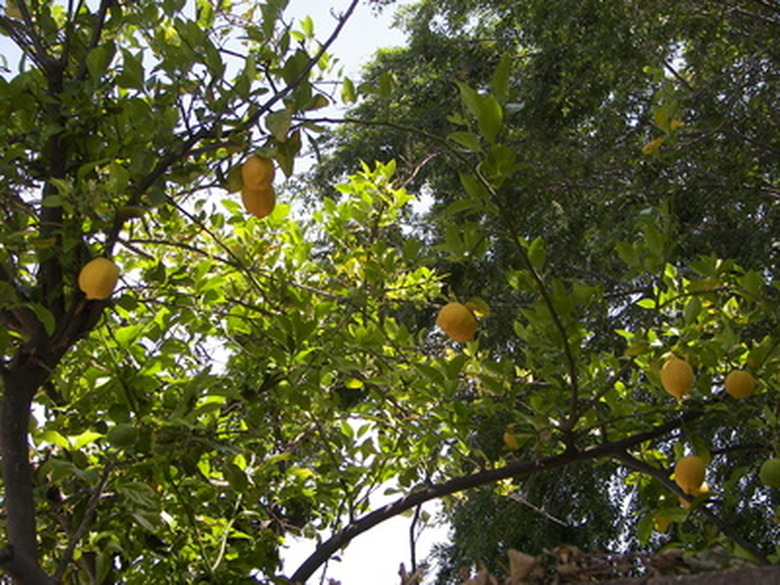The Best Growing Conditions For Lemon Trees
The lemon tree (Citrus limon) grows only 10 or 20 feet tall, producing juicy, acidic yellow fruits. Many different cultivated varieties of lemon trees exist, including many popular dwarf varieties that are grown in containers. Lemon trees have rather specific cultural requirements and cannot tolerate much cold. Although lemon trees can grow in many different environments, the growing conditions for producing fruits involve a mixture of climate, soil, water, sunlight and fertilization factors.
Climate
Lemon trees are among the most cold-sensitive of citrus plants, suffering damage at temperatures below 25 degrees Fahrenheit. If you live in a climate that experiences frequent or prolonged freezing temperatures, you're better off growing lemon trees in containers and bringing them indoors during winter.
Sunlight
Lemon trees like full sunlight and a location that has some cold and wind protection. Unlike many other citrus trees, lemons enjoy slightly cooler summer temperatures in order to ripen their fruits. If you live in a climate with very hot summers, plant the lemon trees in a spot that's protected from the hot afternoon sun.
- The lemon tree (Citrus limon) grows only 10 or 20 feet tall, producing juicy, acidic yellow fruits.
- If you live in a climate that experiences frequent or prolonged freezing temperatures, you're better off growing lemon trees in containers and bringing them indoors during winter.
Soil
Lemon trees can grow well in infertile, sandy or even clay soils. The best soil, however, is one that is well-draining and won't become waterlogged. The soil pH is important for lemon trees and should be between 5.5 and 6.5. Weeds are also an issue, but lemon trees are extremely sensitive to herbicides. Many gardeners control weeds by spreading a layer of bark mulch around the lemon tree, but the mulch must be kept at least 1 or 2 inches away from the trunk.
Water and Fertility
Lemon trees like deep but infrequent watering, such as one thorough watering each week during the spring and summer. Newly-planted lemon trees usually require more frequent watering in the first spring and summer, especially when there is little to no rainfall. In order to produce fruits, lemon trees need regular fertilizer applications, usually three or four times during spring and summer. Lemon trees need a fertilizer containing higher amounts of nitrogen and potassium than phosphorus.
- Lemon trees can grow well in infertile, sandy or even clay soils.
- Many gardeners control weeds by spreading a layer of bark mulch around the lemon tree, but the mulch must be kept at least 1 or 2 inches away from the trunk.
